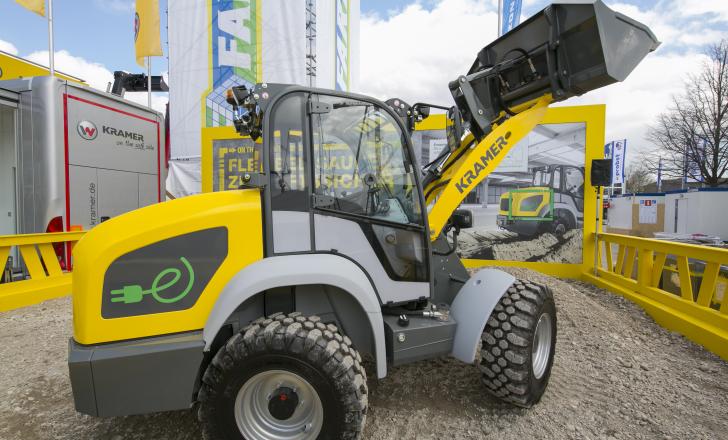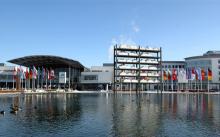
Six companies and research institutions have received bauma 2016 Innovation Awards. Ilse Aigner, the Bavarian minister of economics, praised the winners and all participating companies, emphasising that the awards programme “reflects the innovative strength of the construction equipment, building material and mining industries, both in Germany and internationally”.
Not only does it show the things which are technically feasible, but it also gives us a glimpse of the future, she added.
This year’s bauma Innovation Award winners were:
- Kramer-Werke, Pfullendorf, Germany (Machinery)
- IMKO, Ettlingen, Germany (Components)
- Leonhard Weiss & Co, Göppingen, Germany (Construction Process/Construction Work)
- Technical University of Dresden, Department of Construction Machinery Technology (Research)
- Groupe Mecalac, Annecy-le-Vieux, France, and Technical University of Dresden (Design)
The competition has been attracting rising interest among foreign companies, too, said Johann Sailer, chairman of the German Association of Construction and Building Material Machine Manufacturers, which forms part of VDMA (the German Machinery and Plant Manufacturers' Association).
Almost half of all applications apparently came from international companies. The awards, said Sailer, set signals for the entire industry, and bauma is an ideal platform for this purpose.
Kramer-Werke received the award for developing its fully electric four-wheel-drive wheeled loader 5055e. Being emission-free, the machine is said to be ideally suited for use in buildings and tunnels, in particular. There is no longer any need for costly ventilation or exhaust gas removal.
Aigner emphasised the significance of the awards for the economy. “The winners we honour today have understood the signs of the times, and their innovations contribute actively to sustainable economic developments which are also highly practical.”
The minister referred to mechanical engineering as Germany’s and Bavaria’s flagship industry, the second biggest sector in Bavaria, with a total of 220,000 employees.
IMKO received its award for developing its Sono water-cement analyser, a hand-held measuring device for the fast, safe and trouble-free analysis of the water content in fresh concrete. The user simply enters the parameters of the concrete and dips the analyser, which is fixed to a pole, in a bucket of concrete. The display then shows the relevant water content.
Leonhard Weiss’ award was for a pilot project in which the dilapidated surface of a steel bridge was renovated with relatively little effort. It involved applying a synthetic resin adhesive to the previously repaired steel plate, which forms the road surface, and then scattering bauxite grit onto it. Next, a very close reinforcement mesh was applied, as well as a special high-strength concrete, developed by Contec International. The concrete coat is closely bonded to the steel plate via the grit, creating a totally new and far more resilient road surface.
The Department of Construction Machinery Technology of the Technical University of Dresden award is for its current research project on the 3D printing of concrete.
The scientists from Dresden wanted to take 3D printing directly to the construction site, while also using existing machinery as the basis for its new method.
It involved developing robotic machinery for use within a large space as well as a print head that could apply fast-curing concrete in layers, thus eventually creating entire buildings. This may revolutionise construction processes and designs.
Two companies received awards in the Design category. Mecalac was honoured for its new generation of mobile diggers, while the Technical University of Dresden and several companies cooperating under the so-called Concept Cluster were awarded for their jointly developed driver’s cab, called Genius Cab.





